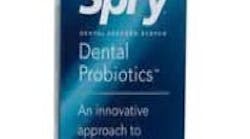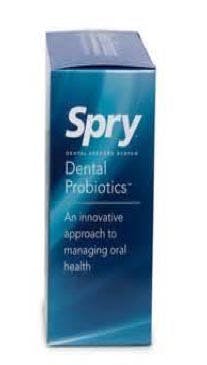By Amber Auger RDH, MPH
A dental hygienist is the patient’s oral health advocate. We consistently strive to empower our patients to have meticulous homecare to prevent disease. Oral probiotics can give our patients the additional advantage that they need to achieve a healthy mouth.
Also by Auger | Celebrate perio success: Emdogain treats infrabony defects
Probiotics are the microorganisms that are found naturally in the human body and are beneficial to health. To obtain optimal oral health, there needs to be a balance between the “good” bacteria and “bad” bacteria. Probiotics originate from the “good” bacteria known as Lactobacillus, Bifidobacterium and Streptococcus. After a short period of consuming the probiotic, the healthy bacteria then multiplies and destroys the cariogenic, or bad, bacteria in the saliva.1
There are billions of bacteria in our mouths that reproduce approximately every five hours.1 The average adult mouth can contain 500 to 1,000 different types of bacteria, which means 100 to 200 living species reside in the mouth at any given time.1 Those who care for their teeth and have a relatively clean mouth still have 1,000 to 100,000 bacteria living on each tooth surface.1 A mouth with unbalanced microbia in the oral cavity increases the acidogenic bacteria that promote dental caries. In addition, having an oral cavity that produces more “bad” bacteria than “good” allows the bacteria to eat away at the bone, which we know as periodontal disease.
Also by Auger | How voice recognition software helps facilitate periodontal charting data
Studies have shown that oral administration of L. salivarius PS2 effectively reduces caries and bacteria that create periodontal disease.2 Spry’s Dental Probiotics works to enhance saliva formation and prevent bad bacteria from sticking to the teeth and gums.3 Spry has created an effective way to administer probiotics to our patients. The package looks much like a Pixy Stix and allows the patient to simply activate the tasty blueberry probiotic by swishing it in the mouth for 30 seconds and then swallowing.
3 easy ways to implement Spry’s Dental Probiotics:
- Post SCRP: After the hygienist has completed scaling and root planing for the duration of the appointment, simply rinse the patient and sit the patient upright in the chair. Tear the top of the packet off and allow the patient to place the blueberry flavored probiotic directly onto their tongue. Advise the patient to swish for 30 seconds and then swallow. Advise the patient to not eat or drink for at least 30 minutes for optimal results.
- Ortho patients: There is no denying the struggle that patients with orthodontics experience to keep their teeth clean. Brackets and other orthodontic appliances act as amusement parks for plaque to thrive on. Patients that are undergoing orthodontic treatment should utilize the probiotics nightly as the last step in their oral hygiene regimen.3
- High-risk patients: Patients with high DMFs can become discouraged when they are continually diagnosed with dental decay despite their improved home care. When reviewing the pH scale with the patient and determining which acidic foods or beverages the patient is drinking, they can understand the impact of dental probiotics more effectively.
For optimal results, Spry recommends using one probiotic packet every evening for 30 days. This regimen is to be completed once every six months for best results, and is best when used after brushing to avoid any eating or drinking after.3
References
- Bizzini B, Pizzo G, Scapagnini G, Nuzzo D, Vasto S. Probiotics and oral health. Curr Pharm Des. 2012;18:5522–5531. [PubMed]
- Maekawa T, Hajishengallis G. Topical treatment with probiotic Lactobacillus brevis CD2 inhibits experimental periodontal inflammation and bone loss. Journal of periodontal research. 2014;49(6):785-791. doi:10.1111/jre.12164.
- Spry Dental Probiotics. http://www.xlear.com/store/spry-dental-defense/dental-probiotics/natural-blueberry-dental-probiotics.html.
Amber Auger, RDH, MPH, is a hygienist with over six years of experience in multiple clinical settings, including facilities abroad. This experience has allowed her to educate dental hygiene students and coach dental teams on periodontal systems to optimize practice growth. She holds a full-time position at an elite dental office in Lynnfield, Mass., and owns her own dental consulting company. Amber obtained master’s in public health from the University of New England and her bachelor’s of dental hygiene from the University of New Haven. Amber specializes in pediatric education, periodontal education, and continues to create progressive systems. She is a key opinion leader for several elite dental companies and a published author. She can be contacted at [email protected].









